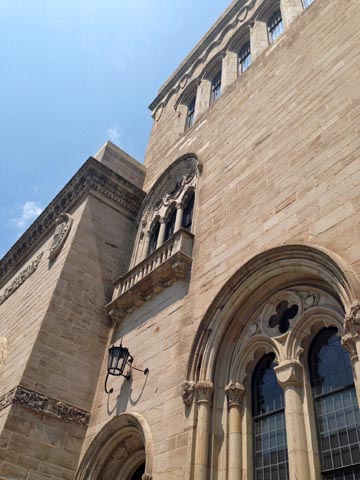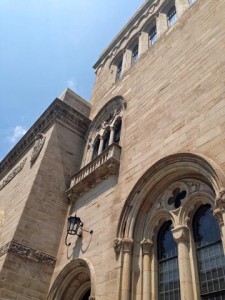Yale adopts Ciencia Puerto Rico platform for project


Yale University in New Haven, CT has established a strategic alliance with Puerto Rican scientific organization, Ciencia Puerto Rico, to create together the “Yale-Science” Initiative.
Yale University has established a strategic alliance with Puerto Rican scientific organization, Ciencia Puerto Rico, to create together the “Yale-Science Initiative” to increase outreach, education, and participation in scientific careers worldwide, the New Haven, CT-based college announced Monday.
The CienciaPR network, founded by Daniel Colón-Ramos, an associate professor of cell biology at Yale, connects more than 7,000 scientists, students and educators interested in promoting science in Puerto Rico.
“We’re proud that our network of Puerto Rican sciences is being adopted as a model by Yale, a center-class research and education,” Colón-Ramos said. “We look forward with enthusiasm to bring together the expertise scientists from CienciaPR and Yale and to extend the impact of these initiatives on a global scale.”
Supported by the commitment and expertise of its members, this network has published more than 200 scientific articles aimed at the general public, written by experts. CienciaPR has also developed educational resources that highlight the work of Puerto Rican professionals in science and engineering, while providing academic and professional scientists and scientific advice in formative stage.
Established in Puerto Rico, CienciaPR is one of the most influential pioneering scientific networks worldwide.
“The [Yale-Ciencia initiative] expands CienciaPR programs taking place in Puerto Rico to increase their international impact and develop new programs to knowledge generated in research centers such as Yale accessible and relevant public and Latinos and Spanish-speaking students,” said Giovanna Guerrero-Medina, executive director of CienciaPR and faculty member at the Yale Center for Teaching and Learning.
The Yale-Ciencia initiative also works with Yale faculty and staff, to increase the recruitment and retention of Latino and Spanish-speaking students, including Puerto Rican students, to promote the diversity of perspectives and inclusion in the sciences, school officials said.












